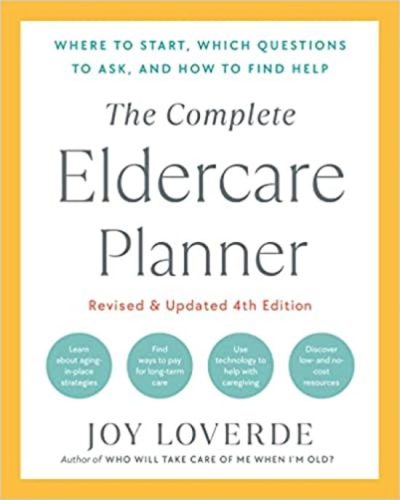The notion that we should care for each other out of love and duty is deeply rooted in our moral code; but do we family caregivers have to go broke in the process? Plus, how will caregiving affect us emotionally being on call seven days a week, 24-hours a day? And what if we find it necessary to quit our jobs?
Caregiving is extremely hard work. Adult children, grandchildren, and others who pitch in to help care for our elders deserve to be paid.
To begin, first review your own financial situation. Shelling out money for eldercare does not do you any good when you potentially jeopardize your own future financial stability. Discuss your personal money-management strategies with a financial planner. With your own longevity in mind, calculate your net worth and outline plans to provide for your retirement needs.
Secondly, if your goal is to get paid as a caregiver, here are a few strategies from my book, The Complete Eldercare Planner, 4th Edition:
- Working family members face additional stresses when attempting to juggle work and family responsibilities. Find out your employer offers employees paid sick leave benefits to care for loved ones.
- Don’t quit your job just yet. Companies that do not offer paid family leave may offer flexible work schedules or allow you to work from home. Ask about the Family and Medical Leave Act. Review options with your supervisor and HR Department before you make any big decisions.
- Some families who have the resources use their own money to hire friends, adult children, nieces, nephews, and grandchildren. A written formal agreement between elders and their caregivers provide a way to compensate a person providing care and head off potential conflicts later on. Seek the assistance of an elder law attorney to draw up a contract.
- Seek advice from an elder law attorney about the possibility of being compensated later on from the elder’s estate.
- Some hospitals, social service organizations and adult education centers offer training programs for caregiving. Upon completion of the program they may qualify to be paid for their services. Contact the local Area Agency on Agingto see if such a program exists near you.
- Suggest to siblings that one sibling at a time takes on the role of caregiver for a specific amount of time, and the rest of the siblings pay an agreed amount of money per month to cover expenses and an agreed upon wage for caregiving. When time is up, another sibling steps in and the process is repeated.
- If you haven’t done so already, investigate long-term care insurance – for you and your elders. Ask about a policy that will pay for family to provide the care after they have completed a caregiving-training program.
- The “Cash and Counseling” program for Medicaid enrollees allows participants to pay family members for their services. Contact the local Medicaid office.
- There are several programs that allow low-income family caregivers to care for their elderly relatives, most notably the Personal Care Attendant Program and the Adult Foster Care Program, which pays family members and others to provide care for elders who are Medicaid eligible and need help with their activities of daily living. Contact the local Medicare office.
- Veterans’ pensions help pay for long-term care. Spouses or family members of veterans may get tax-free money for caring for veterans or surviving spouses. The program is called Aid and Attendance. Contact your local Veterans Office.
- A life insurance policy conversion of an existing policy can allow family members to receive payment as caregivers. Discuss possibilities with the insurance agent.
- If you are caring for parents and provide for more than half of their basic living expenses, you may be able to claim them as a dependent on your taxes. You may also be able to deduct their medical expenses, even if you can’t claim them as dependents. For more information, research the Tax Counseling for the Elderly (TCE) Program on the Internet.
- Disease or condition-specific associations (Example: Alzheimer’s Association) may provide stipends or grants to support caregivers. Each organization has their own requirements to qualify.
P.S. It would mean so much to me if you would leave a book review on Amazon. Why is this book meaningful to you? A brief review is AOK. Even one sentence is helpful to would-be readers.
Thank you!


